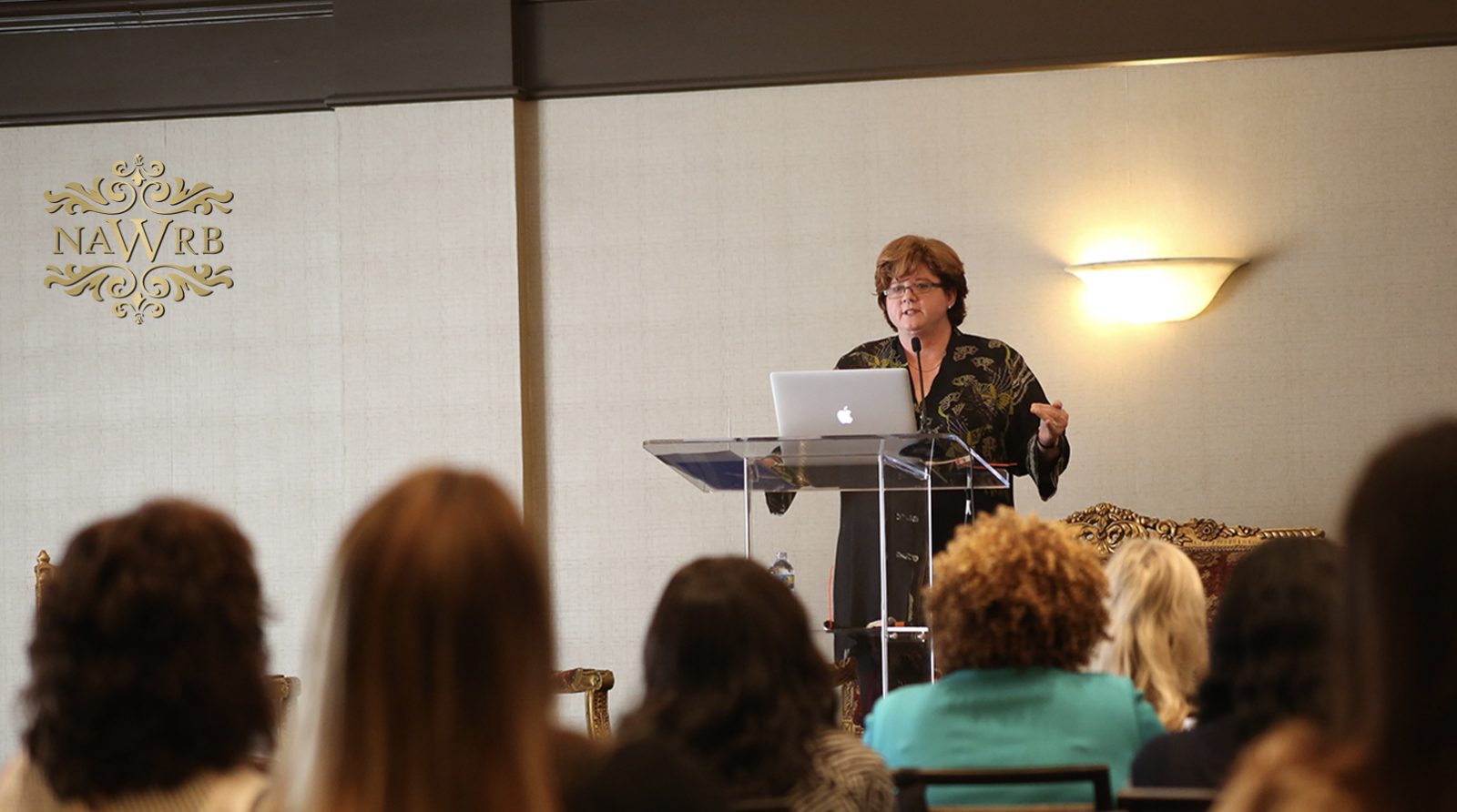Toni Moss, CEO, AmeriCatalyst, LLC kicks off the third day of the conference with a captivating Keynote Address on the current state of global economics and how globalization will affect our future.
Moss starts her presentation by sharing her experience working in the Netherlands, her part in designing the world’s first electronic mortgage origination system, and her company’s culture and ethos. AmeriCatalyst, Moss explains, stands on five pillars: Content, Context, Community, Communication, and Convergence.
Content means knowing your subject, finding the right information, learning to educate yourself and synthesizing your content into something unique.
Context, the second pillar, is the background for your content. As Moss explains, “Ideas have no power without context.” She says that it pays to know the appropriate context in which you can show your relevance and share your knowledge.
The third pillar, community, precedes commerce. Moss notes that it is important to get to know who you are working with because personal connection helps drive good business.
Moss states that she strives to facilitate communication, the fourth pillar. Starting a dialogue with people can help a convergence of information. With convergence, the fifth and final pillar, individuals can determine the trajectory of upcoming trends.
When speaking on change, Moss states that “the greatest change is the pace of change,” and the catalyst of this change of pace is globalization. Globalization, which includes technology and mass communication, “magnifies and accelerates,” according to Moss. Moreover, due to globalization, the world has become inextricably linked.
While globalization has the benefit of connecting the world, it will also present “the biggest challenge of our lives.” Moss shares that the world is currently experiencing a “slow-motion economic crisis” and that the economy has only “grown in fits” since the 2008 economic crash. Some of the important issues that Moss believes need to be addressed are job obsolescence, income inequality, off-sourcing, loss of household mobility and savings.
Speaking on job obsolescence, Moss is concerned about the growth of artificial intelligence, which she calls the most profound technological shift since the Industrial Revolution. Moss’s discussion sparks an important discussion that needs to be had on the status of our economy, where it’s headed, and how we can prepare for an accelerated pace of change.

 Login
Login

